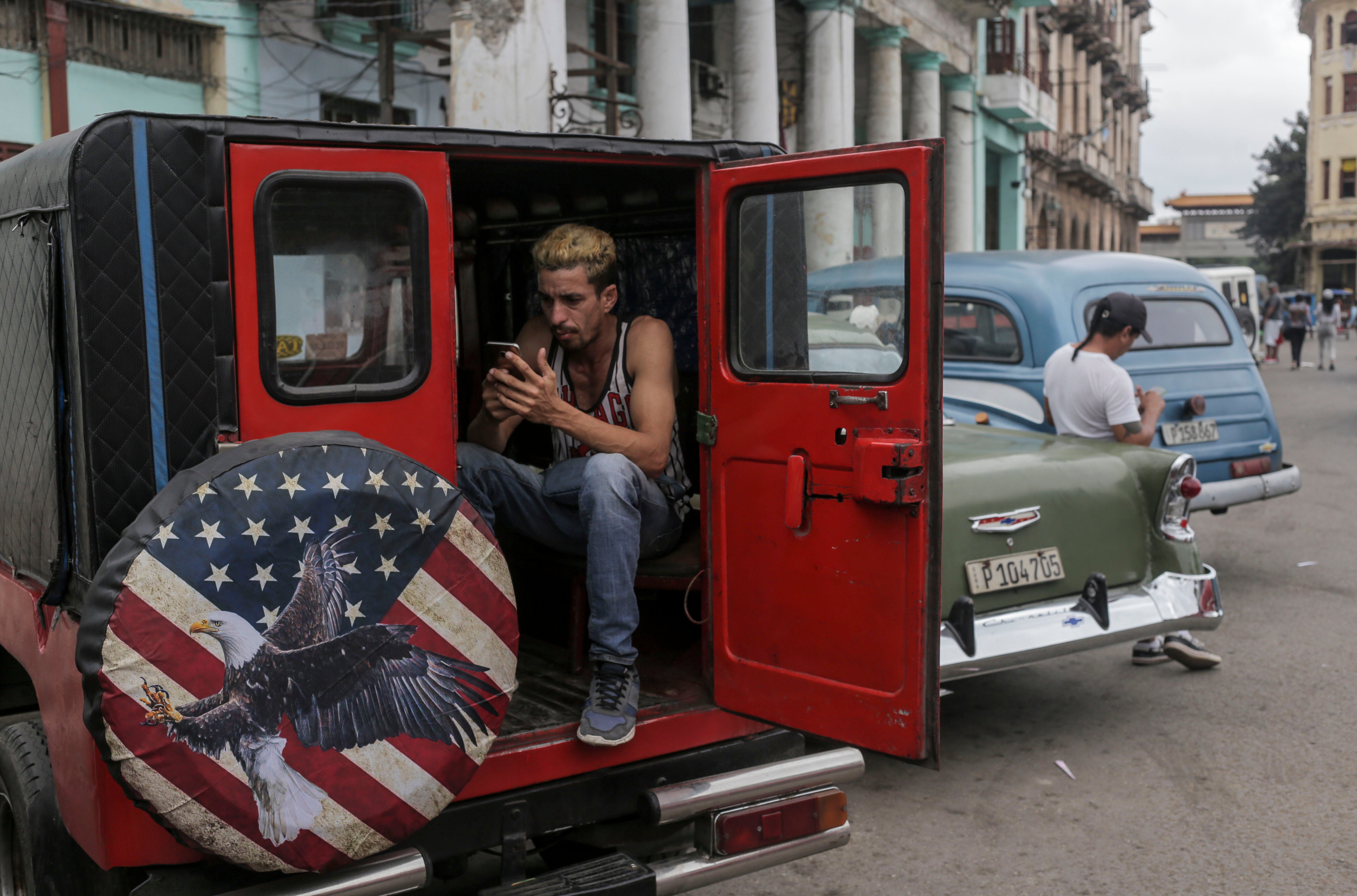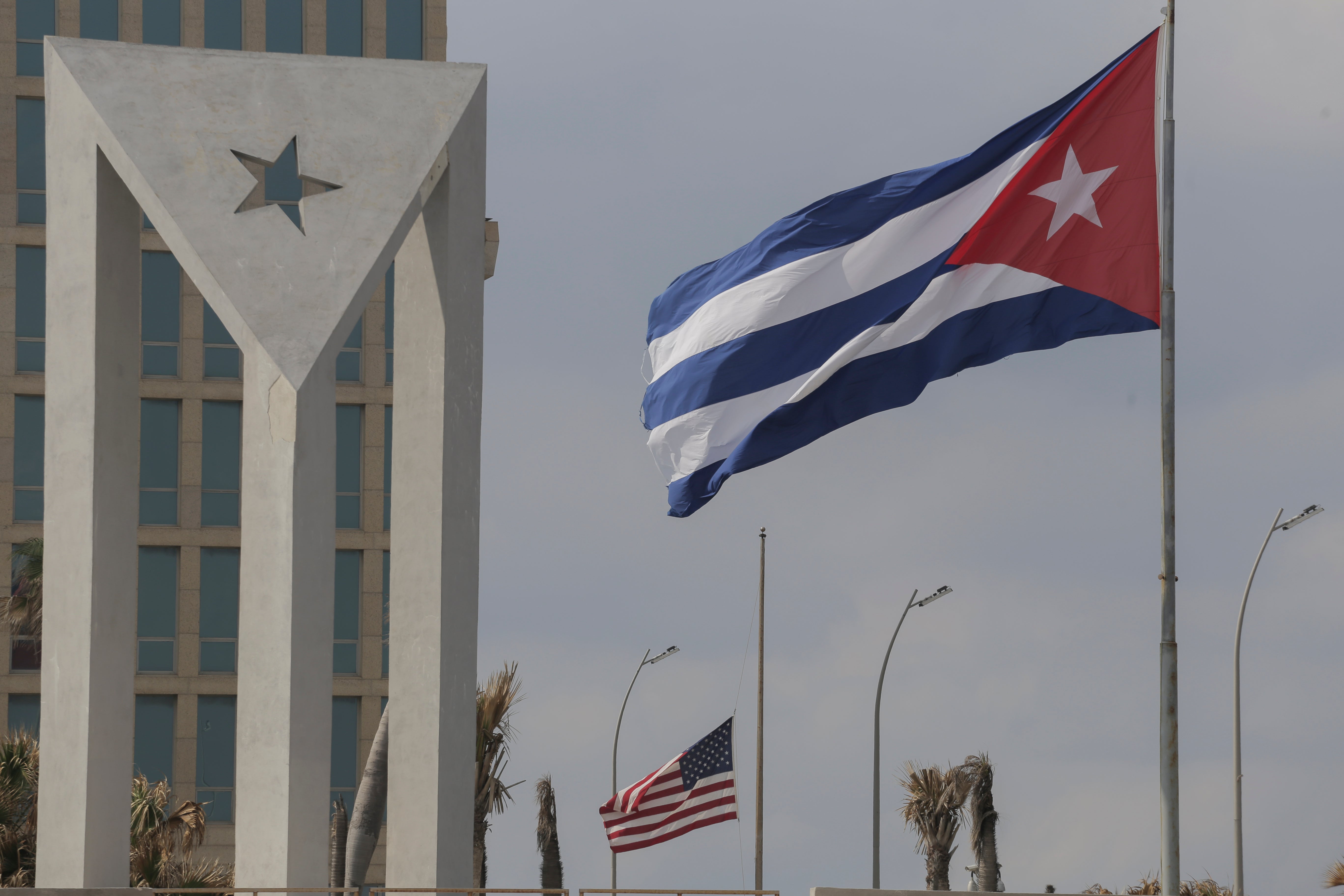This website uses cookies so that we can provide you with the best user experience possible. Cookie information is stored in your browser and performs functions such as recognising you when you return to our website and helping our team to understand which sections of the website you find most interesting and useful.
Your support helps us to tell the story
From reproductive rights to climate change to Big Tech, The Independent is on the ground when the story is developing. Whether it's investigating the financials of Elon Musk's pro-Trump PAC or producing our latest documentary, 'The A Word', which shines a light on the American women fighting for reproductive rights, we know how important it is to parse out the facts from the messaging.
At such a critical moment in US history, we need reporters on the ground. Your donation allows us to keep sending journalists to speak to both sides of the story.
The Independent is trusted by Americans across the entire political spectrum. And unlike many other quality news outlets, we choose not to lock Americans out of our reporting and analysis with paywalls. We believe quality journalism should be available to everyone, paid for by those who can afford it.
Your support makes all the difference.
The huge rectangular mass of concrete and glass — the tallest building in the city — dominates the skyline, towering 150 meters above colonial homes with its 542 luxury rooms and majestic views of the city and the sea.
The Selection La Habana hotel in Havana, managed by Spanish chain Iberostar, has yet to be inaugurated but it is already the target of criticism — and not only for its unusual shape.
Cubans are questioning the government’s allocation of millions of dollars towards luxury tourism while the island grapples with a severe economic crisis and tourism numbers plummet to historic lows.
“All that money could have been spent to build hospitals and schools,” lamented Susel Borges, a 26-year-old artisan, as she looked up to the towering edifice, known to locals as the “K and 23 building” because of its location.
Located near the legendary Habana Libre hotel and the iconic Coppelia ice cream parlor, the new hotel is part of a government plan to build a dozen luxury establishments — mainly in Havana — that did not stop even during the COVID-19 pandemic and while existing luxury hotels remained largely unoccupied.
For decades, tourism drove the Cuban economy, generating annual revenues of up to $3 billion. But in December, Cuban authorities said only 2.2 million tourists visited the island in 2024, a decrease of roughly 200,000 from 2023 and significantly lower than the 4.2 million tourists who visited in 2019.
Cuba has long appealed to tourists attracted by the mystique of a Communist-run island which, at least to visitors, appears frozen in time thanks to a plethora of 1950s autos and towns mostly free of the kind of commercial development seen elsewhere in the Caribbean.

The government attributes the decline in tourism to a “perfect storm” of factors including supply shortages, a severe energy crisis causing massive blackouts and a lack of personnel, due to emigration and low wages. Furthermore, the island is grappling with a surge in U.S. sanctions, including restrictions on travel by U.S. citizens, a ban on cruise ships and other measures specifically designed to stifle the growth of Cuba’s tourism industry.
Canada - which sends more tourists to Cuba than any other country - recently told its citizens to “exercise a high degree of caution in Cuba due to shortages of basic necessities including food, medicine and fuel.”
“Tourism is gone,” said Julio García Campos, driver of a shiny red 1951 Pontiac with an original engine. “Tourists used to line up to get on one of these!” he said, recalling a bygone era when the island was bustling with American and European travelers following a removal of sanctions by then-President Barack Obama.
When Barack Obama became president, the tourism industry blossomed. The barriers imposed by Washington on vacations to the island began to tumble, and airlines launched busy networks of flights across the Florida Straits to enable “people-to-people contacts” to flourish, as prescribed by the White House.
The new Selection La Habana, like all other hotels in Cuba, is state-owned and operates under GAESA, a conglomerate belonging to the Ministry of the Revolutionary Armed Forces that has often been criticized because of the opacity of its businesses. As a military-run operation, it is exempt from audits by the Comptroller General’s Office and has not disclosed the amount it invested in the 40-story hotel.

Cuban economist Pedro Monreal notes the “incongruity” of investing capital in the tourism sector when very little is being allocated to strategic areas such as agriculture.
"With food insecurity a concern, it’s troubling that agricultural investment lags significantly behind tourism investment, remaining 11 times lower,” Monreal noted last year on social media.
Architects also expressed little enthusiasm for the new hotel, pointing at its disruptive appearance within the environment, its excessive height violating urban regulations and tall glass windows that are ill-suited for a tropical climate.
“This building serves as a perfect example in our classes of what should not be done in terms of bioclimatic design,” said Abel Tablada, an architect and university professor, adding it's "unforgivable" that the little money available to the Cuban state has been allocated to a building that does not add value to the city.



 Africana55 Radio
Africana55 Radio 
